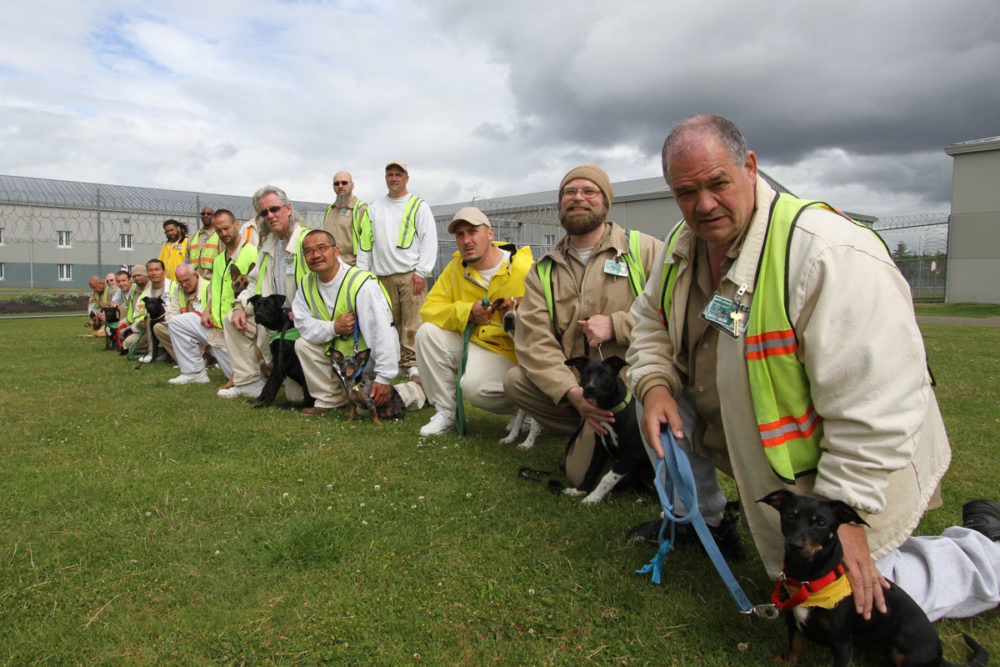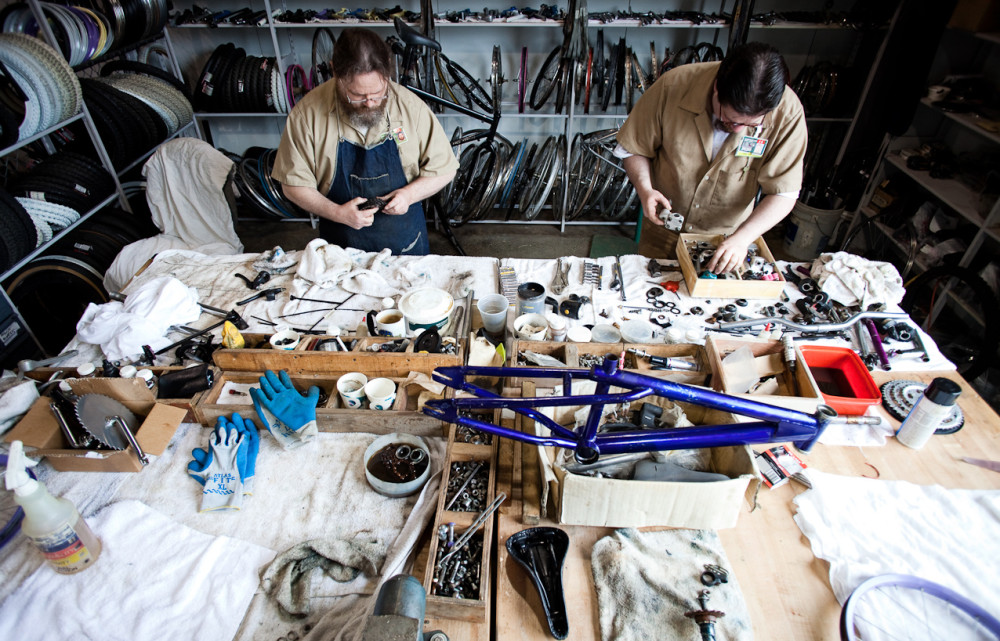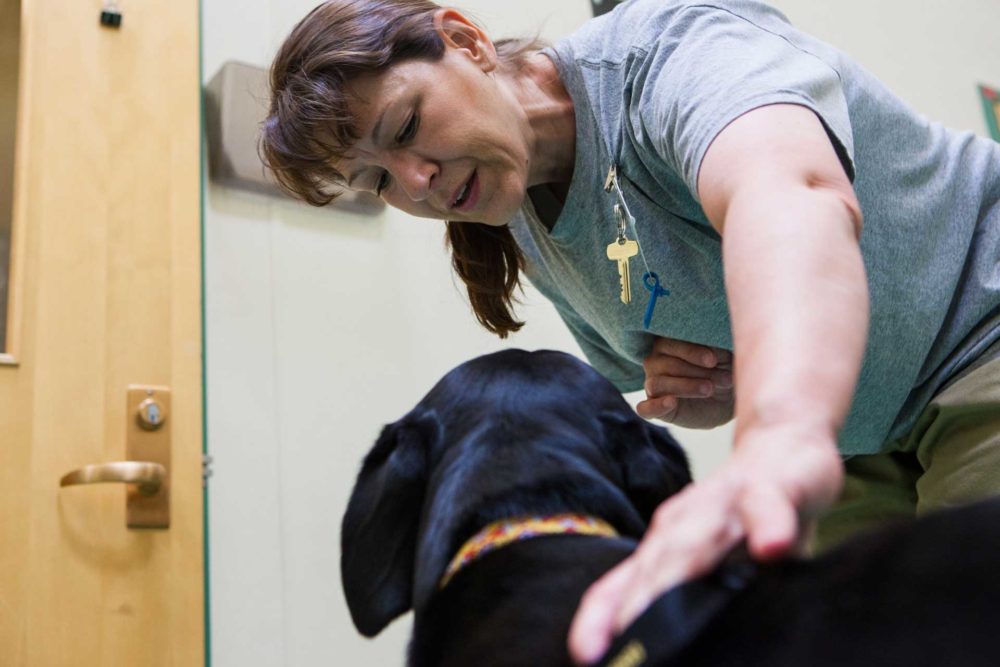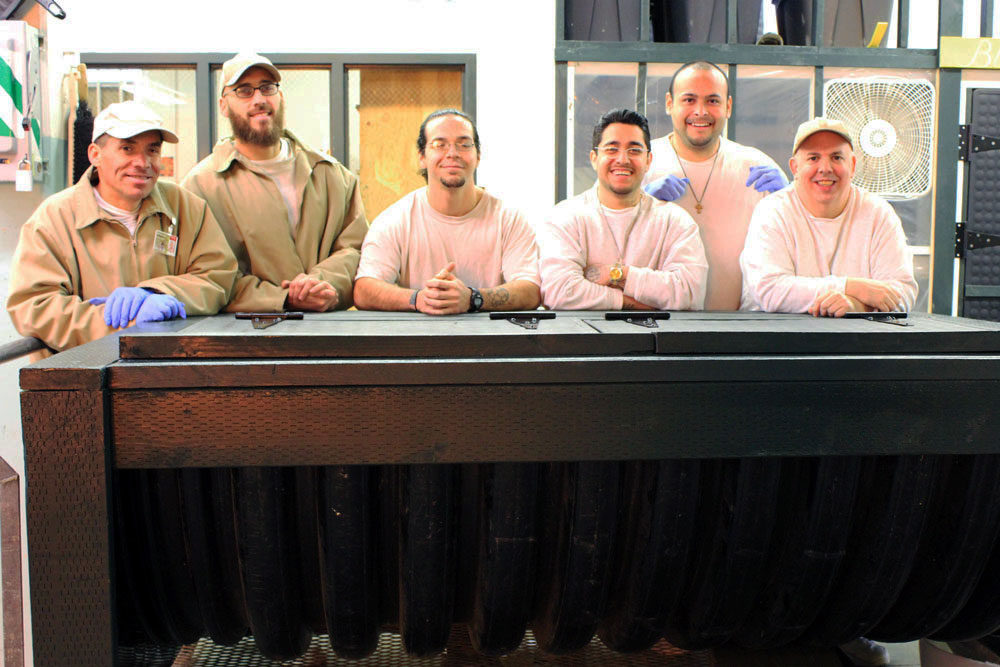Community Contributions
SPP celebrates the many Community Contribution programs in facilities across Washington. Community Contribution programs are administered and supported by hundreds of diverse organizations across the state, and many were established long before they were considered part of SPP — they’ve had their own staff, volunteers, brand identity, and reporting structures. SPP seeks to add to the programs’ identities and to document and promote their achievements and best practices.
Most programs developed as a relationship between a single facility and local community organizations, often non-profits. Typically, the community organizations are already engaged in work that benefits the community; Creating a partnership with a prison means the organization can offer benefits to more people.
For the corrections facility, partnering with community organizations provides incarcerated individuals with more options for meaningful work, and allows them to contribute to the world outside the secure perimeter. For many incarcerated individuals and corrections staff, these programs provide a welcome relief from an otherwise stressful and stark environment. Here we highlight only some of these programs; For full details, see the Community Contributions section of SPP’s annual reports.
Reclaim, Repurpose or Restore, and Donate Programs

This view of an area of WSP’s Sustainable Practices Lab (SPL) gives some sense of the lab’s incredible productivity.
Consistent with the earliest days of SPP programs, WA prisons strive to “throw nothing away,” to transform potential refuse into something of value. In some cases, these programs’ creations directly meet an organization’s need: donating quilts to a homeless shelter, refurbished computers for schools, and growing produce for food banks. In other cases, programs donate handmade or restored creations for organizations’ fundraising events. The productivity and generosity of these programs are best illustrated by statewide numbers. Here’s just a sampling of highlights from 2022:
- AHCC’s “Computers 4 Kids” program donated 19,814 computers through the work of 12 incarcerated individuals. Partnering with the Office of the Superintendent of Public Instruction and the Washington Department of Enterprise Services, 15,378 computers went to surplus and 2,185 went to local schools.
- In partnership with local Master Gardeners, Shriners Children’s Hospital, and the Ronald McDonald House, AHCC gardeners donated 3,616 pounds of produce to Spokane’s Women and Children’s Free Restaurant.
- CBCC vegetable gardeners donated 1,583 pounds of produce to the Clallam Bay Food Bank (with 78 pounds of that grown hydroponically!).
- CRCC’s gardeners donated 1,500 pounds of produce to local food banks.
- Incarcerated men in MCC-WSRU’s Sustainable Practices Lab’s “Bicycles from Heaven” program received 77 bikes donated by local police departments, restored and refurbished the bikes, and donated them to Snohomish County Boys & Girls Club and the City of Sultan.
- WSP gardeners donated 3,800 pounds of produce and 1,000 starter plants to local schools.
- WSP’s SPL’s quilting program donated 750 quilts in 2022.
Dog and Cat Programs

Dog handlers at Cedar Creek Corrections Center train dogs to the specific needs of the veteran who will later adopt the dog. Photo by Jody Becker-Green.
Dog and cat programs are common in prisons across Washington. Nearly all of Washington’s prisons have formed one or more partnerships with community nonprofits to create pet programs. Incarcerated individuals receive support from partner organizations to provide excellent animal care and obedience training, and—in a few cases—service and/or therapy training. We have heard from incarcerated people and corrections staff that pet programs are a benefit to all directly involved, and to the larger prison community as well. Sometimes, participants of these programs say that working with dogs or cats transformed them.
“I’ve had a chance to transform a dog’s trauma into joy through love and discipline. In the end, my efforts liberated not only the dog, but me as well.”
Programs at AHCC, CBCC, and OCC remained suspended due to COVID through 2022, and other facilities’ programs were suspended for part of the year.
| Prison and Program |
Partners | Highlights for 2022 |
| CBCC: Cat program |
WAG!: Welfare for Animals Guild | Five cats returned to CBCC in March 2022. The program has grown to 14 cat handlers and 11 cats (including 5 kittens!). |
| CCCC: Training dogs for veterans |
Brigadoon Service Dogs | CCCC had 2 dogs and 5 handlers in 2022; They hope to expand in 2023. |
| CRCC: Ridge Dogs |
Benton Franklin Humane, Adams County Pet Rescue | 100 dogs graduated from the program in 2022, despite COVID pause lasting part of the year. |
| MCC-TRU: Dog training and adoption |
Summit Assistance Dogs | Program restarted in July 2022, graduating two training classes. Seven dogs were trained by nine 2-person teams and 13 dedicated dog walkers. |
| MCCCW: Pawsitive Prison Project |
Kitsap Humane Society | 200 cats and 10 dogs were adopted during 2022, with about 100 incarcerated women participating in their care. More than 1,100 cats have been adopted through this program since 2006! |
| SCCC: Service dogs for veterans |
Brigadoon Service Dogs | 18 service dogs graduated in 2022. |
| WCCW: Prison Pet Partnership |
First in-prison pet program in the country, self-supporting; 2022 data not available. |



